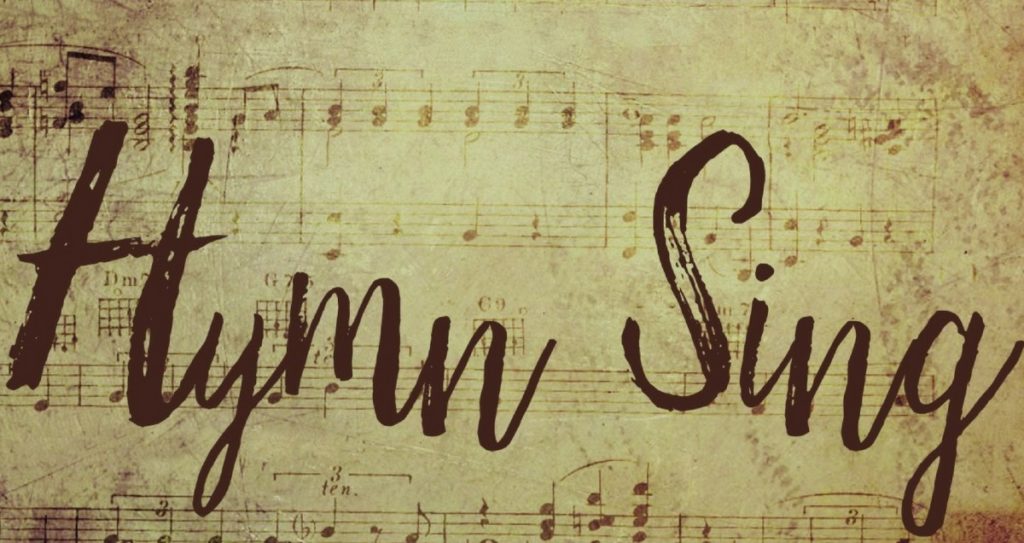
Today we are celebrating our faith in song!
In our United Methodist tradition there is no official doctrine book.
When people ask what we believe, we can point them to John Wesley’s sermons,
But we can also point to the hymnal.
From the earliest days we have been able to say to the world,
if you want to know what we believe, come sing with us!
So yes, John Wesley was a theological genius.
But so was his brother Charles—who was not known as a preacher as much as a song writer.
In fact, he wrote more than 6,000 hymns!
And though big brother John is more famous today,
how many of us can quote a single word from one of his sermons?
Many of Charles’ hymns are still popular today
Our opening Charles Wesley hymn this morning was chosen as the first hymn
in the very first methodist hymnal by John Wesley himself, in the year 1780
And it has been the first hymn in the hymnal ever since.
Fun fact: it originally had 17 verses!
Even better: We’ll only do the first four verses today!
* Hymn “O For a Thousand Tongues to Sing” UMH 57
Verses 1-4
It’s no surprise that our faith is based on our songs.
The book of Psalms has many songs written by king David,
But some of the psalms go all the way back to the time of Moses
When we say, “Let’s sing an old timey song!” we have to look to the book of psalms!
* Responsive Reading Psalm 150
Praise the Lord!
Praise God in his sanctuary; praise him in his mighty heavens.
Praise him for his acts of power; praise him for his greatness.
Praise him with the sounding of the trumpet
Praise him with the harp and lyre
Praise him with tambourine and dancing
Praise him with the strings and pipe
Praise him with the clash of cymbals
Praise him with resounding cymbals.
Let everything that has breath praise the Lord.
Praise the Lord!
The Gloria Patri is a form of doxology—a song of praise to God.
The earliest doxologies were addressed to God alone,
But by the fourth century AD Christians were praising father, son, and holy ghost
God the three in one.
The Gloria Patri is so important that are ancient versions written in
Greek, Syriac, Arabic, and four versions in Latin
Let’s just stick with English as we sing today!
* Gloria Patri: Glory be to the Father and to the Son and to the Holy Ghost;
As it was in the beginning, is now, and ever shall be,
World without end. Amen, Amen.
This next hymn was so popular in southern gospel music that I always thought
it must have been written by an American somewhere on the frontier.
In fact, it was written by an Englishman named William Fry.
A British Methodist, Fry was also “The first bandmaster of the Salvation Army"
A bricklayer by trade, like his father, Fry was a versatile musician,
playing the violin, cello, piano, cornet, and harmonium, and leading an orchestra and band
at the Wesleyan chapel in Alderbury, and his family band accompanied
Salvation Army founder William Booth in evangelism campaigns
Hymn “The Lily of the Valley” TFWS 2062
Like many spirituals, “Guide My Feet Lord” carried more than one meaning
There was the spiritual message, but also the prayer that when the day came
to run away, God would not let that running be in vain.
So the music from the plantations provided spiritual encouragement,
as well as hope for the day that the people singing would be able to say
Free at last, free at last, thank God almighty I’m free at last
Hymn “Guide My Feet, Lord” TFWS 2208
Pastoral Prayer
Prayers of the People
The Lord’s Prayer
This hymn is attributed to one Henry Richard McFadyen, the son of Rev. Archibald McFadyen (1836-1911), who studied for the ministry in part while a prisoner of war in Ohio during the Civil War. He had served as a lieutenant in the North Carolina cavalry and been captured after surviving the Battle of Gettysburg. A graduate of Union Theological Seminary in Richmond, there is a McFayden chair at that school endowed to this day. During this time many Appalachian hymns were attributed to educated persons who had connections with publishers back east. It might be worth noting that McFadyen served churches in the mountains of NC, among the Scotch Irish and Cherokee people. Today, Native people say this is a hymn of their own making. Whether he wrote this song or simply wrote it down, McFayden did us a favor by publishing it so we can enjoy it today.
Hymn “The Lone Wild Bird” TFWS 2051
Worshipping with God’s Tithes and Our Offerings
Offertory
* Doxology: Praise God, from whom all blessings flow;
Praise God, all creatures here below, Praise God above, ye heavenly host;
Praise Father, Son, and Holy Ghost. Amen.
The book of Esther made it into the Bible in spite of the fact that it doesn't mention God, or prayer, or any of the stuff a book of the Bible should have. But it tells a poignant story that has God's handprints all over, and it causes us to ask, did God put us here for such a time as this? I'm going to sing a song for you now that does not mention God or prayer, but to me, it has God's handprints all over. If you know this song you may want to sing along:
Hymn Satisfied Mind
Music is one of the most powerful forces God ever invented, and American Gospel music is one of the most powerful forms of music the world has ever known. Over time it helped to give birth to soul music, country, bluegrass, rock and roll--the list goes on and on. So let's finish with a good old Gospel song with a praise music beat;
*Leaning on the Everlasting Arms UMH 133
8:45 Service
For God so loved the <your name> that he gave his only begotten Son, that <your name> would believe in him, and shall not perish but have eternal life. 17 For God did not send his Son to <your name> to condemn the world, but to save the <your name> through him.

Thoroughly enjoyed the service, you are a very talented man. Looking forward to your next service and can’t wait to see what you play for us next. We have been so blessed to have you come as our new pastor.